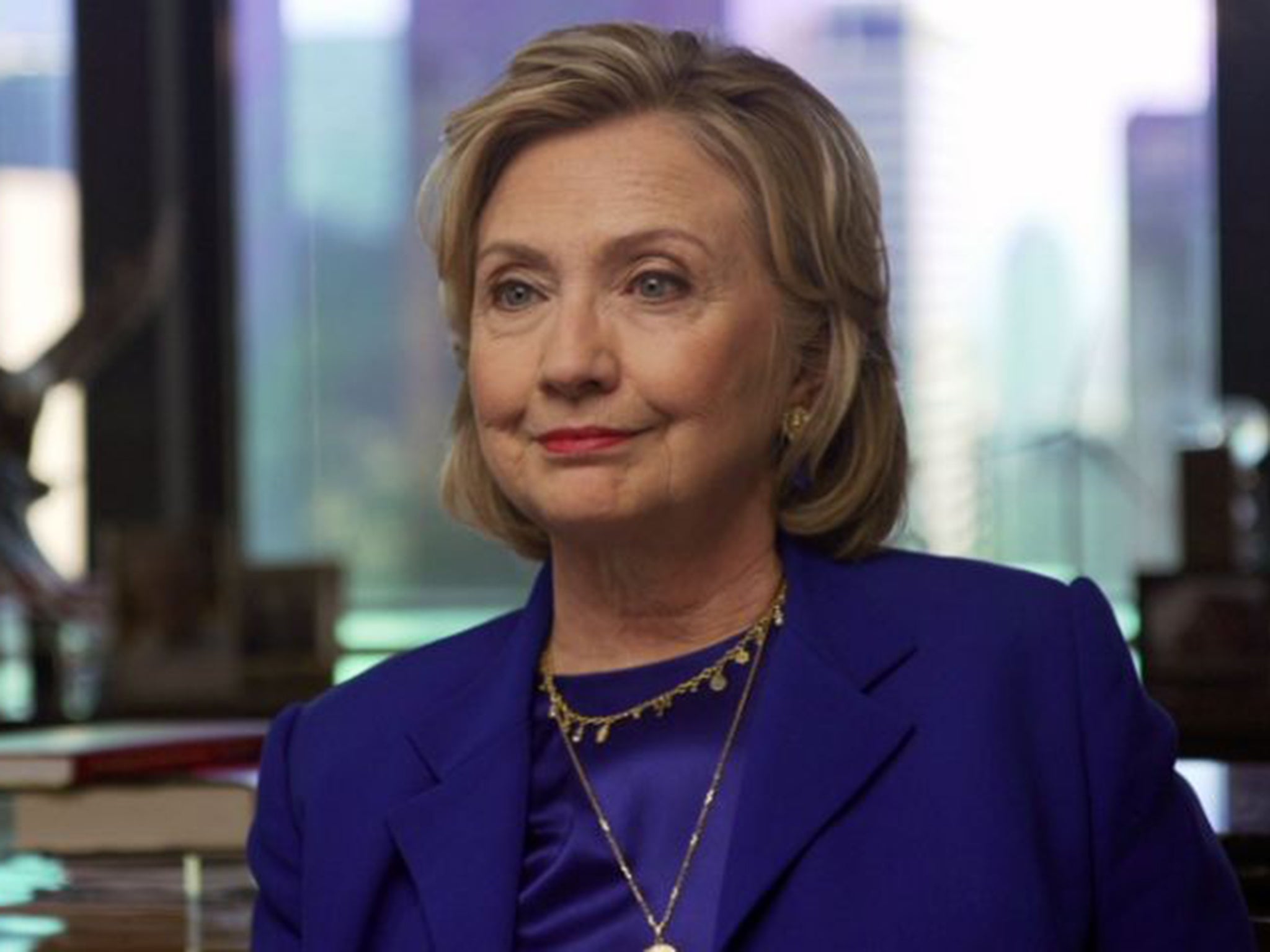Hillary Clinton: The Power of Women, TV review: Women's rights isn't about the battle of the sexes - it's the inequality, stupid
The documentary was a story of what's happened to women in the world since Clinton gave a landmark speech at the UN's Fourth World Congress on Women

Your support helps us to tell the story
From reproductive rights to climate change to Big Tech, The Independent is on the ground when the story is developing. Whether it's investigating the financials of Elon Musk's pro-Trump PAC or producing our latest documentary, 'The A Word', which shines a light on the American women fighting for reproductive rights, we know how important it is to parse out the facts from the messaging.
At such a critical moment in US history, we need reporters on the ground. Your donation allows us to keep sending journalists to speak to both sides of the story.
The Independent is trusted by Americans across the entire political spectrum. And unlike many other quality news outlets, we choose not to lock Americans out of our reporting and analysis with paywalls. We believe quality journalism should be available to everyone, paid for by those who can afford it.
Your support makes all the difference.Before BBC2 turned to the possible next US President in Hillary Clinton: the Power of Women, it launched a new documentary series The Ladykillers: Pest Detectives. The latter's premise was based on the fact that a mere six per cent of pest-control professionals in the UK are women. It's a classic bit of man-bites-dog TV commissioning. Look at the women! Killing the rats! Fancy that!
But while six per cent is obviously a flimsy number in any profession, look at the United States Senate, which in its existence has only ever had 31 female Senators. A grand 1.4 per cent of the total. Even today only 20 of the 100 sitting Senators are women. It's the same in the US Congress and the UK is hardly any better, with 22 per cent. But it's still dismal.
One of those 31 Senators was – of course Hillary Rodham Clinton – who left the Senate in 2009 to concentrate on her bid to be President. Which, if it finally happens in 2016, will mean that 2.2 per cent of all US Presidents will have been women. And she'll be all 2.2 per cent of them. Well done, the patriarchy.
The title of this documentary might lead you to think that this was a profile of the former Secretary of State as she almost certainly begins the 18-month-long slog towards the 2016 US Presidential elections. It wasn't quite that, alas. It was more the story of what's happened to women in the world since Clinton gave a landmark speech at the UN's Fourth World Congress on Women in 1995. There, the then First Lady asked for that particular gathering to be a call to action to improve women's rights around the world.
Taking that as a lead-off, director Francis Whately took us through a brief – mainly depressing – ride through some of the worst things to happen to the planet's women over the past 20 years, starting in war-torn Yugoslavia, where rape was being used as a weapon of war, with Bosnian women's bodies being used as frontlines by soldiers in an attempt to destroy ethnic identities, ie by forcing them to have Serbian children.
There was quite a telling moment in this part of the film. The backbone to the thread here was three interviews by executive producer and media grandee Tina Brown with America's three female Secretaries of State (4.4 per cent), Clinton, Condoleezza Rice and Madeleine Albright. At the height of the Yugoslav conflict, Albright was the US Ambassador to the UN and here she recounted talking to other UN officials about the ghastly situation for Bosnian women and was told: "Don't be so emotional."
Among tales of horror and mass rape in DR Congo, people-trafficking in India; the gory medieval dominion of the Taliban and sexual assault in the midst of the Arab Spring, there were some hopeful – albeit – well-known tales. Leymah Gbowee and Liberia's Women in White who rose up against the tyranny of Charles Taylor; Afghanistan's first elected female MPs, including Fawzia Koofi, and brave Arab activists such as Mona Eltahawy.
This was their story more than it was Clinton's. And though it made sense to append her name to title, it was misleading.
Still, Clinton's role cannot be understated. The fact is that despite some slightly pragmatic dealings with unenlightened allies as Secretary of State, she gets the importance of women's rights. If she becomes POTUS #45, expect conversations like the ones in this film to finally take centre stage.
Join our commenting forum
Join thought-provoking conversations, follow other Independent readers and see their replies
Comments